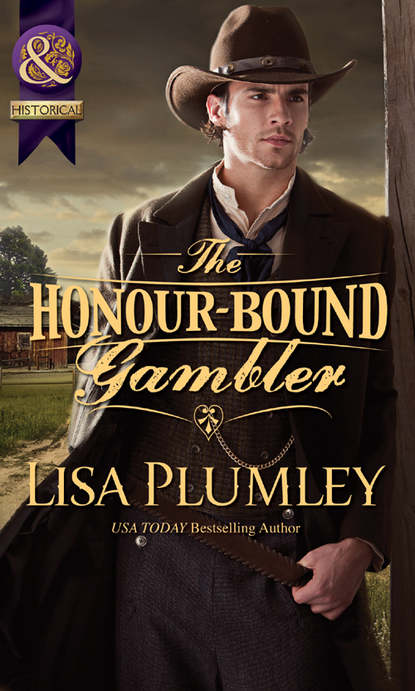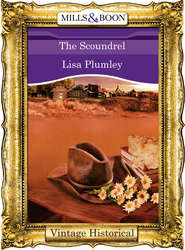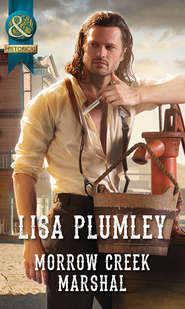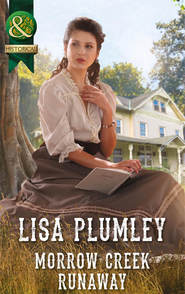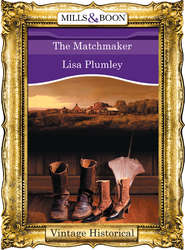По всем вопросам обращайтесь на: info@litportal.ru
(©) 2003-2025.
✖
The Honour-Bound Gambler
Настройки чтения
Размер шрифта
Высота строк
Поля
Reluctantly, the scamp examined his pair of clinkers. He’d probably been earning all the sustenance he had with them. He appeared disinclined to part with them. But the kid would be better off without those cheaters in his hands. They’d only get him in trouble. Nobody was likely to keep the boy from earning some much-needed money with fast gambling—and truthfully, Cade wasn’t inclined to try—but at least the practice could be made safer. With a keener pair of loaded or expertly shaved dice—like the pair Cade kept ready in his coat pocket, for instance—the boy’s subterfuge would be less detectable. All Cade had to do was slip them to the little sharper, easy as pie.
If the morals of helping a child to cheat were supposed to have bothered him, Cade guessed he was past repentance. Because this boy reminded him of his brother—of those hellacious orphan trains the two of them had been shoved onto and the hopes they’d had crushed for all those long-ago months—and he’d be damned if he’d let one small boy shiver for the sake of his own need for a heavenly reward.
Besides, the boy’s future marks weren’t any concern of Cade’s. Any man who would set out to purposely bilk a down-on-his-luck child at gambling deserved to lose a few coins. Cade wasn’t that man. But the boy didn’t know that and never would.
At the child’s continuing reluctance to strike a weightier wager, Cade heaved a sigh. “No deal? Fine. I’m late already.”
“Oh? You goin’ to Miss Benson’s gala benefit?”
“You stalling for time? It’s an easy bet. Yes or no?”
The boy toed the dirt. He eyed Cade’s coat. “Add in that nice watch of yours too, an’ you got yourself a good wager.”
Against all reason, Cade admired the boy’s pluck. “I won this watch in the biggest game of my life. It’s sentimental.”
“You sayin’ no? ’Cause I ain’t familiar with sentiment.”
If Cade had been a softer man, that admission would have broken his heart. As it was, he only sobered his expression, then shook his head. “You can’t have my watch.”
The boy shrugged. Appearing resigned, he shook his fistful of rigged dice. With elaborate showmanship, he yelled, “Hold on to yer britches then, sir! Here comes the first roll, gents!”
Too late, Cade realized they’d drawn a clump of onlookers. In the shadows cast by the setting sun, four strangers watched as the dice spewed from the boy’s hand, rolled on the ground, bounced theatrically from the nearest lumber wall, then stopped.
A five-spot and a one-spot winked up. Another roll, then.
Cannily, the boy let himself lose the first several throws. All the while, he kept up an animated pitch—a talk meant to reel in Cade and keep him wagering even after he began losing. Such tactics were all part of the game—a prelude to the inevitable swindle after which the boy would walk away victorious.
If a grown man had tried such tactics on Cade, he wouldn’t have been so patient. There was a reason he carried a derringer, two wicked blades and a surfeit of suspicion wherever he went.
As the alleyway grew darker and the dice rolled on, side bets sprung up among the spectators. Money rapidly changed hands; good-natured insults were traded along with the wagers. Cade wasn’t surprised. In the West, gambling was as common as breathing. After all, what was mining if not wagering that you’d find more gold than dirt in the nearby hills? Compared with wielding a pickax, pitching dice was hardly backbreaking.
As the dice rolled again, a sharp breeze whirled into the alleyway. The boy shivered. So did Cade. He’d upped the ante on their wager several times already. Now it was time to end this.
“My turn.” Cade accepted the dice. Deftly, he switched them for the pair from his coat pocket. He rolled. Then he swore.
Exactly as he’d planned, he’d lost everything.
“I won! I won!” the kid crowed. “I get your coat, mister!”
The boy’s eyes shone up at him. In that moment, Cade didn’t mind that he’d made himself late for the Grand Fair. Then the urchin deliberately schooled his expression into his previous toughness, Cade remembered that he was a hard-nosed gambler who was in town only long enough to find the man he’d hunted through several states and territories…and the world righted itself.
“Tough break,” a bystander commiserated. “You was just coming back, mister. You ain’t got no kind of luck, do you?”
At that, Cade grinned, pinned by an unexpected sense of irony. This time, with the boy, he’d lost on purpose. But he hadn’t enjoyed his usual run of good luck lately—that was true.
In fact, if his current unlucky streak continued, Cade didn’t know what he’d do. He was so close to finagling a way into the high-stakes gambling circuit he’d been chasing. He desperately needed to keep up with that league of professionals.
It was the only way to find Whittier. He ran with that circuit; if not for his vaunted appearances at the table, he might as well have been a ghost. The minute rumors had flown that he’d been spotted here, in Morrow Creek, Cade had pulled foot for the town, too, hoping to catch up with him.
Besides, Cade had already tried everything else he could think of to track the man. His more legitimate search methods had turned up nothing.
“Well, it’s like I always say,” Cade told the bystanders, “if you must play, decide upon three things at the start—the rules of the game, the stakes…and the quitting time.” As he spoke, he slipped off his overcoat. He dropped it, covertly divested of all the items he wanted to keep, on the boy’s shoulders. “Now it’s quitting time.”
“What? You ain’t even gonna try to win your money back?”
“Not tonight.” Cade turned away. Behind him, he heard two awestruck whistles and several gruff, gossipy murmurs. Whoever said women were the only ones with flapping jaws was dead wrong.
“Hell! I’d say we got ourselves a new sporting man in town, boys!” one of the local men said with a chortle. “And he’s droppin’ money like he’s got holes in his pockets, too.”
The urchin ignored the chattering men. He chased down Cade, the oversize coat trailing on the ground behind him, then tugged at his suit sleeve. “Hey, mister! I know I won and all, but…I don’t reckon you meant to leave this behind. I found it in your coat pocket.”
He held up a wad of greenbacks, fastened with an ivory clip, which Cade had won off a cotton merchant down South.
Cade had meant to leave that money with the ragamuffin. He didn’t have much use for his winnings—aside from their ability to stake his reputation, admit him into the elite high rollers’ circle and eventually get him invited into their next private faro tournament. If he was lucky, that’s where he’d find Whittier. Cade had already skimmed off a sufficient quantity of cash for his own incidentals. He had a fair bankroll set aside at his hotel. And there was always his benefactor, Simon Blackhouse, to rely on if he needed more funding, too.
But what concerned Cade now wasn’t his own well-being. Because behind the boy, out of sight of his stupefied gaze, all those onlookers stared at Cade’s carelessly lost money with hungry eyes. Surely they wouldn’t actually steal from a child?
Cade didn’t know. All he knew was that some things—not many, in his experience, but some—weren’t wagering material.
“You show me how to get to the Territorial Benevolent Association Grand Fair,” Cade said, “and you can keep it all.”
Wide-eyed, the boy nodded. Quick as a wink, he shoved the wad of cash down his pants for safekeeping. “For this much scratch I’ll take you there myself! But I ain’t stayin’. I done heard of kids bein’ lured in by Miss Benson and then they ain’t never seen again! I don’t want no reformer gettin’ ahold of me.”
Cade only shrugged. “I don’t care much for those do-gooder types myself.” He started walking, with the boy eagerly dogging his every booted step. Something about the urchin’s sudden devotion bothered him, but Cade shrugged that off, too. “Give me a bottle of mescal, a pretty girl, a fair hand and a chance to square off against Lady Luck, and I don’t need much else.”
The boy skipped ahead, belatedly taking the lead as he’d agreed to do. He pointed to their destination. “The fair’s up yonder at that ole’ brick house.” He eyed Cade. “You fixin’ to steal all the raffle money for the new library or somethin’?”
“Nope. I’ve never stolen anything in my life. I’ve never had to, and I’m not starting now.” Speaking in all honesty, Cade leveled his gaze on the house. Morrow Creek residents came and went in all their meager territorial finery. Music and lights spilled from inside, foretelling exactly the frolic he expected. “I’m here for something even better than raffle money.”
The boy scoffed. “Nothing’s better than money.”
“At least one thing is,” Cade disagreed.
At that, the boy made a disgusted face. “What? Love?”
Cade laughed. “Nope. Not love.”
He wasn’t even sure what love was. He cared for Judah; that was true. Everyone else he kept at arm’s length for good reason.
“If it ain’t money, and it ain’t love, then what is it you’re after?” the child demanded to know.
“Answers,” Cade told him. “I want answers.”
Then, for the fourth time in as many months, he headed toward the celebration he hoped might change his life…all over again.
Standing at the edge of the boisterous Territorial Benevolent Association Grand Fair with her toes tapping and her arms full of discarded shawls, wraps and overcoats, Violet Benson felt like nothing so much as a human coat hanger—a coat hanger who wanted desperately to join in the fun.
All around her, the finest and largest house in all of Morrow Creek was packed to the gills with revelers. Her friends and neighbors were dancing, drinking and trying their luck at the evening’s games of chance, including the fancifully painted wheel of fortune donated by Jack Murphy. Now that the device wasn’t situated in his saloon, even the ladies felt free to place bets. Violet hadn’t yet done so herself, but she thought she might later if she ever divested herself of her burden.





